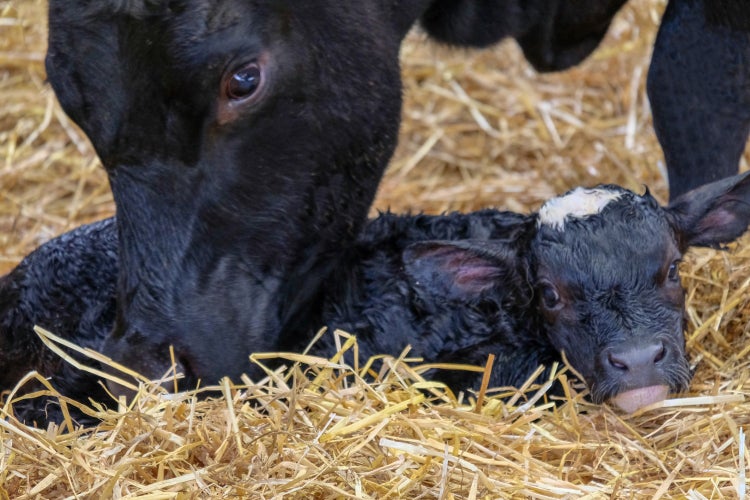CVS Farm improves testing and treatment of calf respiratory disease via heavily subsidised programme in 300 farms
25 July 2025
CVS Farm is delivering a heavily subsidised project to improve the use of diagnostic testing of respiratory disease in calves - to better manage herds, guide appropriate treatments and reduce the unnecessary use of antibiotics.

Within two years, it has increased the use of nasopharyngeal swabbing by vets on farm by almost 100%, by helping to remove the financial barriers to a thorough veterinary investigation into the causal organisms of calf pneumonia.
With funding from Boehringer Ingelheim, the respiratory disease project was launched in September 2022. So far, over 300 farms have benefited from subsidised respiratory pathogen investigations.
During the CVS Farm research, a mixture of agents have been identified from the samples analysed by CVS Labs using an eight-pathogen multiplex test. These have included; Mycoplasma (37%), IBR (6%), P13 (12%), Coronavirus (38%), Histophilus (48%), RSV (30%), Mannheimia (64%), and Pasteurella (94%).
The results of each farm’s respiratory pathogen tests have been presented to each farmer and discussions held on taking a more preventative approach. These have included conversations on biosecurity, immunity, housing, environmental management, vaccination and treatment protocols. Through this process, CVS Farm vets have gained greater understanding of problems specific to each client - enabling the production of bespoke action plans.
The respiratory pathogen results have also enabled CVS Farm vets to target the right vaccine to the right farm to cover the key risk periods for those animals. All vaccinations have been timed in relation to peaks in clinical cases and pre-stress periods - such as weaning, group movements or transport to ensure animals are protected against the correct pathogen effectively. Taking this preventative herd health measure has resulted in significantly fewer antibiotics being required to treat respiratory infection and disease in the past year.
BRD is caused by a complex interaction between viruses, bacteria and mycoplasma pathogens, many of which live harmlessly in the respiratory tract of healthy cattle as commensals. The disease is usually triggered during or following a stressful period by a viral infection and a subsequent infection of the airways with opportunistic bacteria. This combination of stress factors and infectious agents makes young cattle especially vulnerable[2].
Steven Carragher, Quality Improvement Farm Lead for CVS and Senior Veterinary Surgeon at Alnorthumbria Vets, said:
CVS Farm is taking a ‘One Health’ approach to clinical improvement and developing practical projects to address related challenges, such as antimicrobial resistance and improving animal welfare. Every practice has appointed a vet to be a Practice Quality Improvement Lead, who collaboratively; brainstorms how to overcome challenges, develops ideas for clinical improvement, identifies the resources and technology needed to implement each project and advocates for programme delivery within a practice’s team.
CVS Group operates across small animal, farm animal, equine and laboratories, with over 500 veterinary practices and referral centres in the UK and Australia. In the last five years the company has invested nearly £80 million in its sites, facilities and equipment, in addition to industry leading training and support, to give the best possible care to animals. For further information, visit the CVS Group website.